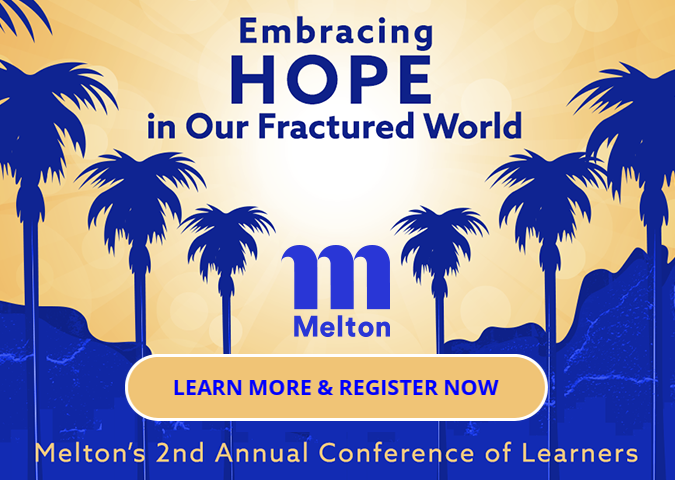Propaganda vs. facts: How pro-Hamas protests point to a frightening educational failure
Melton's International Director, Rabbi Dr. Morey Schwartz, wrote this op-ed for USA Today.
As the world watches a growing wave of campus protests in support of Hamas following the heinous Oct. 7 attacks, there is grave concern for the future of academia. Gone is the pursuit of intellectual text-based honesty, seemingly replaced by hashtags, social media posts, YouTube videos and catchy slogans. In the name of higher education, all educators need to take a step back, remove themselves from the protests and promote the study of primary texts coupled with open dialogue to fuel greater understanding. If educational leaders make this change, we might just be able to turn this momentum around, bringing society, or at least the leaders of tomorrow, back to a place of mutual and respectful debate.
Learning directly from primary texts, rather than relying solely on secondary or tertiary articles, much less social media posts, quick animations and TikTok videos, needs to be the call of the day. Primary sources offer unfiltered access to original information, enabling firsthand engagement with the original thoughts, context and intentions. Direct exposure to primary texts fosters critical thinking, independent analysis and a deeper understanding of all subject matter. Not everyone needs to agree — that is not the objective. The objective is to emphasize the pursuit of truth through an investment of time and effort. Most topics are multi-dimensional, and many universities need to do some soul-searching as to how they have allowed themselves to fail their students so miserably.
There is a way to debate the Israeli-Palestinian conflict on campus without students fearing for their lives. Educators are tasked with building a safe environment for their students. It is time that all universities once again embrace as their highest priority democratizing knowledge, returning to earnestly present their students with primary sources that serve to clarify the nature of the conflict, the facts and historical nuances at the core of this conflict, without peddling their own biases, without overlaying their teaching with personal perspective. All university educators need to make the classroom into a place where students learn what is really happening, rather than learning what they know from the slogans plastered on protest signs and the incessant belligerent chanting from demonstration bullhorns.
In the words of Malcolm Forbes, "Education's purpose is to replace an empty mind with an open one."
We know the benefits of engaging with primary texts, how one encounters the raw material of ideas, and how this enterprise allows for personal interpretation and the development of unique perspectives, autonomy and originality of thought. These are among the reasons that we use text and primary sources whenever possible in our adult-learning classrooms around the world — not to tell people how to think, but to empower them to think for themselves. Primary texts offer a glimpse into the historical and cultural context of the time, providing insights beyond the content itself. This contextual understanding is crucial for a comprehensive grasp of the material, aiding in the interpretation of nuances, biases, and motivations underlying the text.
Within the Israeli-Palestinian conflict, for example, context is key. The use by protestors of one-dimensional charged terms like "apartheid," "racist," "colonialism," "genocide" and "ethnic cleansing" oversimplifies and incorrectly describes what in fact is a much more complex situation. Some go even further with their cause, attempting to "cancel" or rewrite moments in history and to use these misrepresentations as the basis for their unfounded current narratives.
It is frustrating enough to see this manifest among student protestors, but when educators use these charged terms themselves or even allow students to chant them without interjecting to correct them, they de facto create an unsafe environment for students with differing opinions. This has played out in increasing numbers on college campuses since Oct. 7, drawing the attention of donors and future applicants, and requiring at times the involvement of law enforcement and other government officials due to the safety risks to segments of their student body.
What comes next?
As University of Penn leaders resign, students say 'a lot still needs to change'
I am certain that most students acting in threatening manners toward their classmates likely have not taken a course on the history of the Israeli-Palestinian conflict. How many of these students understand what "From the River to the Sea" really means? How many have read Hamas's constitution, or even understand the internal devastation it has caused to the people of Gaza over the last two decades? My guess is that few students really understand that their protests are not actually supporting Palestinians but rather encouraging Hamas and other such terrorist organizations to continue in their bloody ways. Most of these protestors have never taken the time to actually study the texts, research the factual history, comprehend the complexities of the context, grasp the nuance of the language they are using and to gain for themselves a sophisticated understanding of the situation, an informed perspective on the conflict.
The time has come for all educators of our university students to once again rise to their calling and devote time and effort toward empowering tomorrow's leaders with a sophisticated, primary text-based comprehension of the history and context of the controversies of today. Opinions of university students should not be based on 280-character tweets and 60-second videos. All educators at our universities must return to the real work of educating, to the foundations of their actual mission as college professors: to replace empty minds with open ones.
We call it "higher education" for a reason — not just because it costs a lot more.
This article originally appeared Dec. 11, 2023, on the USA Today Network.
When you subscribe to the blog, we will send you an e-mail when there are new updates on the site so you wouldn't miss them.


